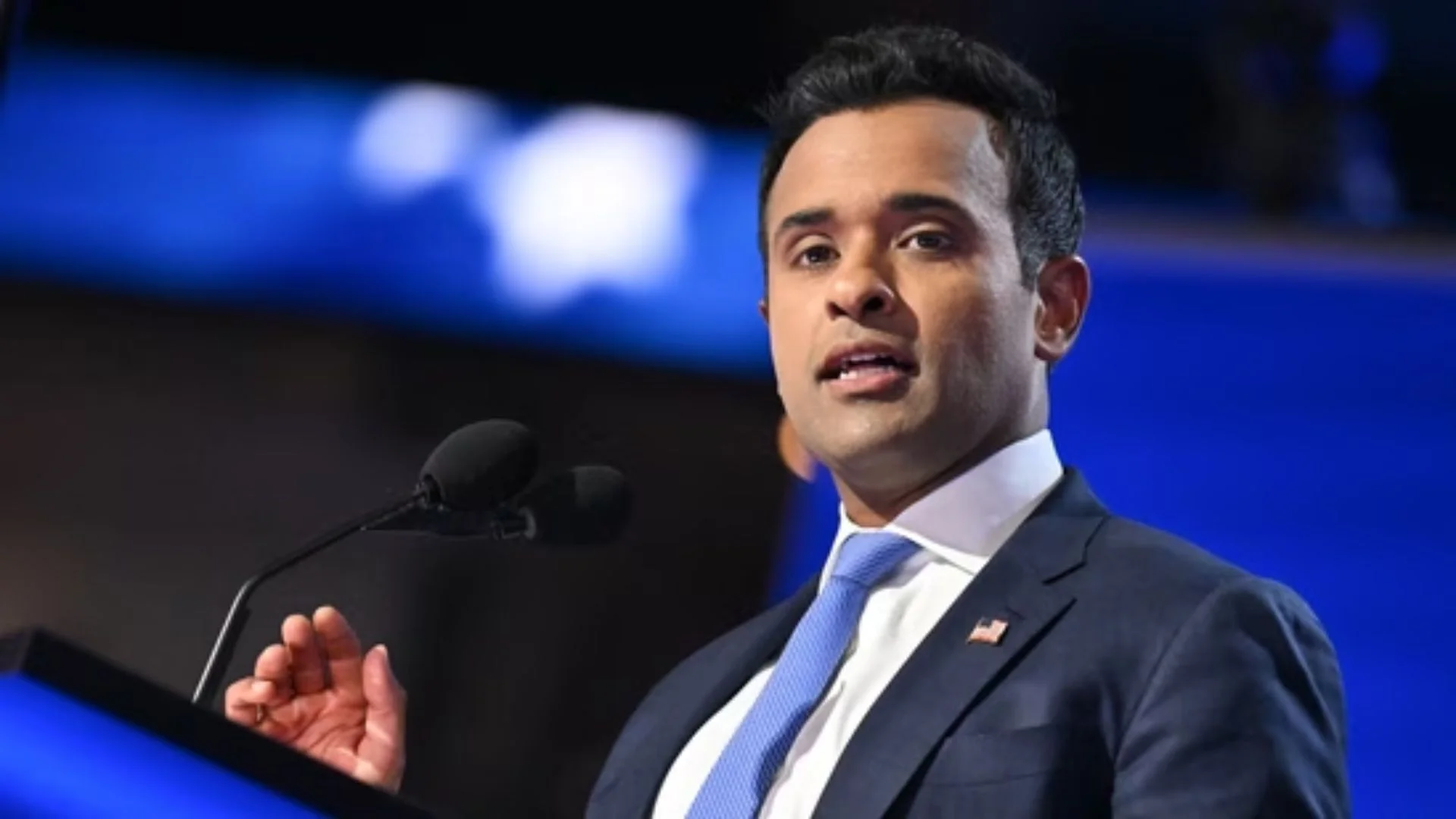The recent exchange between Republican candidate Vivek Ramaswamy and an American citizen, who labeled Hinduism as a “wicked, pagan religion,” underscores the varying reactions to religious intolerance across cultures, particularly in comparison to India.
Ramaswamy’s composed response to the inflammatory comment exemplifies Hinduism’s inherent tolerance and resilience. However, the incident raises critical questions about how reactions might differ if similar remarks were made against other religions, especially within the current context.
Some on the left reject Thomas Jefferson because he was a “slaveholder.” Some on the right reject him because he was a “deist” & “an enemy of Christianity.” Both are foolish. A fun teaching moment tonight. 🇺🇸 pic.twitter.com/kpuXMJhz95
— Vivek Ramaswamy (@VivekGRamaswamy) October 16, 2024
In the United States, there is a persistent trend among certain evangelical groups to undermine non-Abrahamic faiths, particularly Hinduism, often dismissing them as “pagan” or at odds with American values. Yet, Hinduism, both in India and abroad, typically responds with less offense than would be expected if Christianity or Islam were similarly criticized. This situation highlights the profound tolerance ingrained in Hindu philosophy. Rather than escalating the situation or pursuing legal action, Ramaswamy defended his faith calmly, using the moment as a “teaching opportunity.”
Critics note that if such a public insult had been aimed at Christianity in India, the backlash would likely have been much stronger. The narrative could have shifted to claims of “Hindutva” fostering religious intolerance, drawing widespread condemnation from Indian media and international outlets eager to portray India as increasingly intolerant. Legal actions, such as public interest litigations for hate speech, might have been initiated, showcasing how swiftly Christian groups could mobilize against such offenses.
If there had been such a publicised exchange in India where a Hindu in a debate with an Indian Christian leader lashed out at Christianity and called it an evil and devilish religion there would an uproar in Christian circles, it would be said how Hindutva had poisoned our… https://t.co/F4pvZQDOri
— Kanwal Sibal (@KanwalSibal) October 20, 2024
This scenario reveals a significant disparity in the perception and practice of religious tolerance across different societies. Hinduism, with its pluralistic ethos and the deep-seated belief in “Sarva Dharma Sambhava” (equal respect for all religions), generally absorbs criticism and embraces a diverse array of spiritual beliefs. In contrast, criticism or mockery of Christianity often prompts defensive actions or public outrage, particularly in the West.







